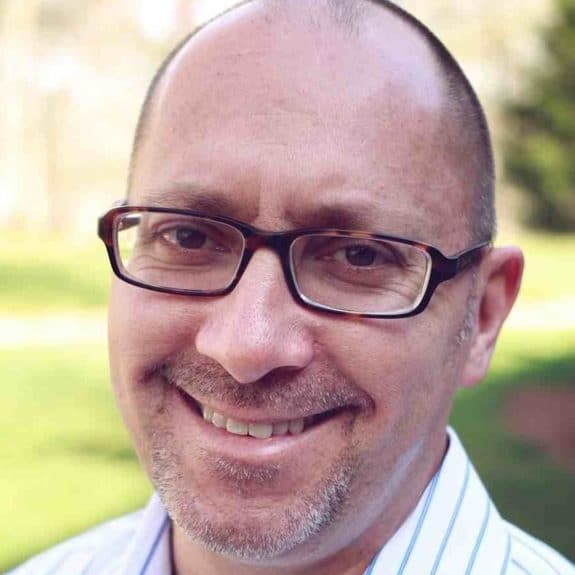AUSTIN–The Texas Supreme Court will hear arguments Sept. 26 in a case that could expand the state’s ability to intervene in local church affairs. Also, the court may soon return a ruling in a case argued in January 2005 about the extent of state oversight of degree-granting religious institutions, said Hiram Sasser, director of litigation for Liberty Legal Institute, an arm of the Plano-based Free Market Foundation.
Sasser told the Southern Baptist TEXAN that the case to be argued Sept. 26 involves a lawsuit against pastor C.L. Westbrook Jr. for alleged “professional negligence” as a licensed counselor. Liberty Legal Institute will represent Westbrook.
Westbrook’s church, Crossland Community Bible Church, followed the Matthew 18 steps for confronting an erring member, Sasser said, when in 2000 it made public Peggy Penley’s divorce and an alleged “biblically inappropriate relationship.” In joining the church, Penley signed a covenant to abide by the church’s constitution, which included disciplinary procedures, according to an article about the case in the journal Texas Lawyer.
Penley filed suit against Westbrook for circulating a letter to the congregation explaining her removal from the church roll because of her alleged unrepentance.
A Fort Worth trial court dismissed the case because it believed it had no constitutional jurisdiction. Then a Texas appeals court reversed that ruling. Westbrook then appealed to the Texas Supreme Court, which agreed to hear the case.
Southwestern Baptist Theological Seminary filed an amicus brief on Westbrook’s behalf, said Brent Thompson, the seminary’s associate communications director, as has Dallas Theological Seminary. Even though there is abundant case law to overturn the appeals court ruling, Sasser said he is not presuming victory.
If the court upholds the appeals court ruling, chances are slim the United States Supreme Court would hear it, Sasser said.
“The U.S. Supreme Court has not taken a church autonomy case in over 30 years, although the law under the First Amendment has changed significantly in that 30-year time span. They’ve been presented with a lot of cases and they have not taken one. That tells us that if the Texas Supreme Court does not rule favorably for the pastor, then we’re not expecting any relief from the Supreme Court either. So the Texas Supreme Court is the last stop for these issues.”
Sasser said he believes Penley’s suit lacks the “purely secular nature” that federal courts have required when states have successfully intervened in religious organizations’ affairs.
In Bell v. Presbyterian Church (U.S.A), a 1997 case decided in the U.S. 4th Circuit Court of Appeals, the court ruled state jurisdiction would be “appropriate only to resolve ‘purely secular disputes between third parties and a particular defendant, albeit a religiously affiliated organization.'”
In a paper presented to the Texas bar last spring, Free Market Foundation president and attorney Kelly Shackelford wrote that the purely secular standard of intrusion “would prohibit a court from trolling through the doctrine, beliefs and actions of clergy and churches to determine the level of religiosity associated with the actions in question.”
Sasser said the Texas Supreme Court typically takes 12-18 months to return a verdict.
Meanwhile, the court may soon return a ruling in a case Liberty Legal Institute argued in January 2005 about the extent of state supervision over degree-granting religious institutions. The case, H.E.B. Ministries v. Texas Higher Education Coordinating Board, involves three Texas seminaries that the state fined a combined $173,000 for issuing 34 religious diplomas without state approval.
As a third party, Southwestern Seminary filed an amicus brief in the H.E.B. case as well. The H.E.B. case is unprecedented in Texas, Sasser said, and could negatively affect the freedom of religious education institutions to appoint boards and set criteria for faculty and curricula.
The fined seminaries are Tyndale Seminary, Southern Bible Institute and Hispanic Bible Institute.
H.E.B. Ministries has challenged the state’s “authority to control all Texas seminaries through state regulations,” based on both the free exercise and establishment clauses of the First Amendment, Shackelford wrote.
The state, however, argues that it is rightly protecting citizens by controlling institutions that grant advanced degrees by applying the same neutral, secular rules that govern law schools and medical schools, for example.
Texas more than any other state, Sasser charged, has infringed into formerly protected territory for religious institutions. Only China and Vietnam have more government oversight into religious organizations, he contended.
“If we win, you should be relieved,” Sasser said. “If these cases have negative outcomes, the state is going to be able to determine faculty members, even the ability to have academic freedom. The state would be the ultimate ruler of religious education in Texas.
“In both of these cases, we have overwhelming law on our side. We need the court to understand what the law is and apply it correctly. … These are slam dunks. These are the easy ones. If the Texas Supreme court can’t get these right, then we are in trouble.”














